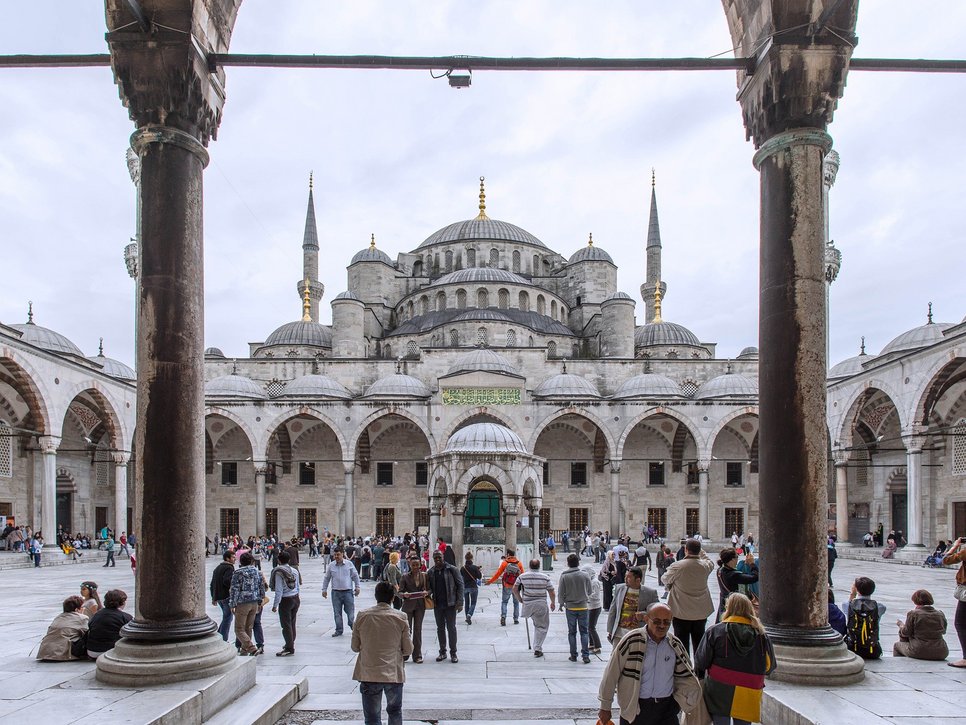Clientelism and Electoral Dominance in Turkey
Düzgün Arslantaş
Standpunkt

When the Justice and Development Party (Adalet ve Kalkınma Partisi, or AKP) led by the former mayor of Istanbul, Recep Tayyip Erdoğan, came to power in 2002, nobody expected that this would be the start of the longest period of one-party government in modern Turkey. Considering the Islamic credentials of the AKP’s founders and the strong secular tradition in Turkish bureaucracy and judiciary, this was a very unlikely development.
Contrary to common sense, however, in less than a decade the Erdoğan government dramatically weakened the guardians of the ancient regime, if not transformed them into a party instrument, and capitalized on comprehensive social and political reforms that proclaimed a “New Turkey.” The recent transition to a Turkish type of presidential system is the hallmark of building an authoritarian one-man regime in a country that has a long tradition of electoral democracy.
»So what is it that accounts for the AKP’s reproduction of dominance?«
Admittedly, a wide range of elements, including the disproportional electoral system and the manipulation of ethnic and religious cleavages, contribute to its electoral success. In comparison to other factors, however, what has been underexplored to date is the role of clientelism in keeping the party dominant. My dissertation addressed this issue based on ethnographic fieldwork in Istanbul’s Bağcılar district, where poverty is pervasive and Islamist groups are active.
Clientelism, which can be defined as the exchange of political support in return for material benefits, typically targets the poor, as they outnumber other social groups. To buy their loyalty in the context of Bağcılar, the AKP not only delivers material benefits such as food and coal but also distributes patronage jobs. This strategy extends the party’s voter base despite rampant corruption. This is paradoxical and best finds expression in a phrase much used among partisans: “They steal but they serve.”
Despite the appeal of clientelist benefits, the link between clientelism and vote is far from being automatic. What, then, is the mechanism? My fieldwork demonstrates that taking part in clientelist exchange boosts partisan identification and fosters the neoliberalization of Islamic ideology, which in turn reproduce the cycle of dominance. The former explains why political polarization dominates religious and ethnic polarization and, even more importantly, why “hostile partisanship” prevails. The latter is crucial to understanding how Islam and neoliberalism, which have been widely imagined to be incompatible, have become intermingled and harmonized. In the same vein, such a transformation is crucial to explaining why poor people have not only not resisted the neoliberal reforms that have undermined their material well-being but, in fact, have wholeheartedly embraced them.
»The economic crisis challenges the Erdoğan regime«
The clientelist parties secure votes as long as resources are abundant. That is to say, once resources become scarce, partisan identification weakens. Accordingly, we see that the ongoing economic crisis seriously challenges the Erdoğan regime. The immediate implication is that as public and private resources have become scarcer, the AKP’s clientelism has become more exclusive. Therefore, the AKP has had to sacrifice swing voters, who have a decisive influence in the elections. The AKP’s loss of local elections in Istanbul and Ankara can be read from this perspective. Even more importantly, as material resources shrink, the non-material component of clientelism, the Islamic ideology, has been slowly turning into a substitute for material benefits rather than being complementary to them. This seems to bolster already frightening political and social polarization in the country.


